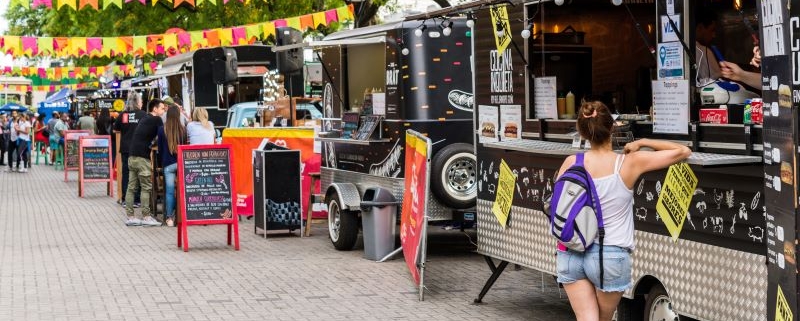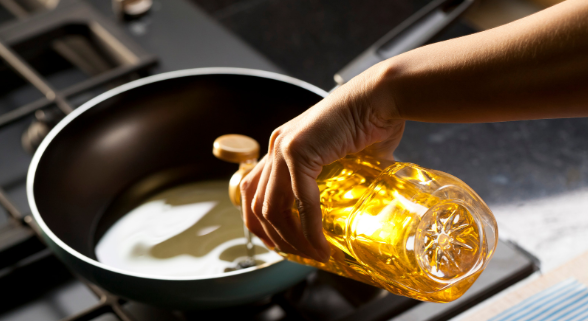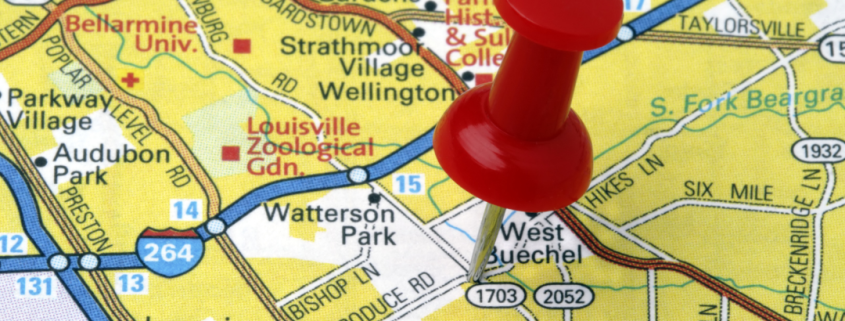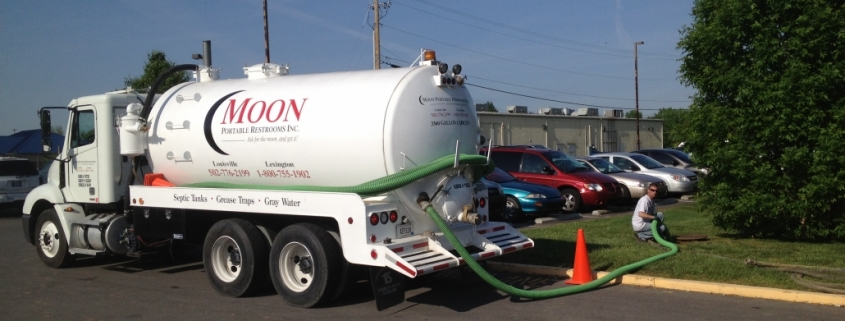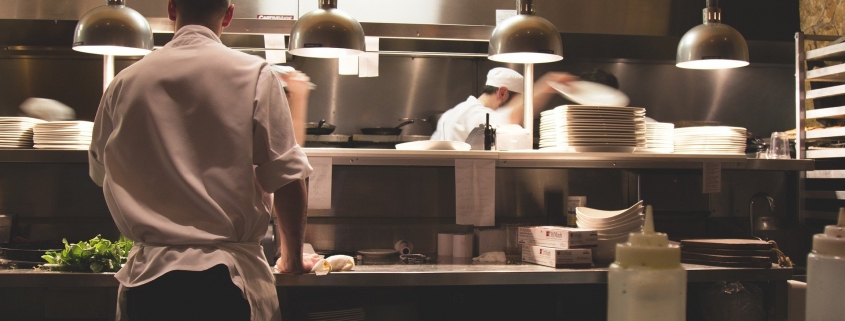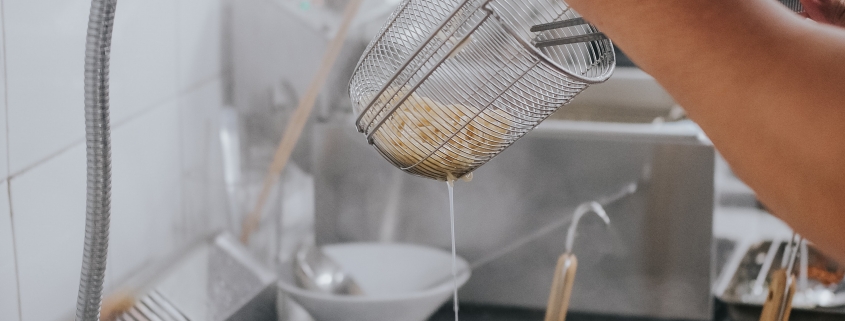FOG Guidelines in Lexington, KY
The water and sewer systems of cities are indispensable to the everyday life of residents, businesses, and tourists alike. That’s why governing bodies require everyone to do their part in keeping the systems as clean and functioning as possible. One of the biggest threats to city water systems is FOG, or fats, oils, and grease. Because commercial kitchens and restaurants are one of the largest generators of FOG, they have a set of guidelines that they must follow. In Lexington, KY, there are a few requirements that restaurants and others in the food service industry must meet, as well as a list of Best Management Practices to implement in their establishment. The FOG guidelines in Lexington, KY include:
1. Proper Installment of a Grease Trap or Grease Interceptor Approved by the LFUCG Division of Water Quality.
Before installing grease traps or grease interceptors, Lexington food service establishments (FSEs) must have approval from the LFUCG Division of Water Quality (Lexington-Fayette Urban County Government). This ensures that your grease collection equipment is the correct size and up to construction and plumbing codes. In order to achieve this, Lexington FSEs must submit a permit application that outlines:
- Proposed interceptor location
- Proposed size of grease interceptor
- Detailed drawing of interceptor and piping
- Number and type of fixtures proposed to be attached
The LFUCG grease interceptor requirements also include construction guidelines, which are that grease interceptors need to be:
- Substantially constructed of impervious materials capable of withstanding abrupt and extreme changes in temperatures
- Be watertight
- Be equipped with easily removable covers
- Contain a baffle system to adequately divert and slow the flow to avoid short-circuiting
- Be traffic rated, if located in roadways or parking lots.
2. Consistent Maintenance Performed by a Certified Grease or Septic Haulers
FOG guidelines in Lexington, KY state that external grease interceptors needs to be cleaned no less than once every six months. However, cleanings maybe need to be more frequent if the nature of the FSE produces more or less waste. The Best Management Practices has a few tips for decreasing FOG output. Smaller indoor, under-sink grease traps need more frequent cleaning. This can be anywhere from weekly to even daily cleaning, depending on how much FOG is produced in a day. FOG output depends on a lot of factors, like:
- Type of food,
- Cooking methods
- Cleaning techniques
- Carry-out verses dine-in
In addition to the frequency of cleanings, Lexington, KY also requires city-issued grease interceptor pumping and hauling permits from companies. This lets FSE owners know if a company can haul and dispose of your FOG safely. Moon Grease Trap Cleaning has you covered there as a certified grease trap pumper in Lexington, KY!
3. Certified Record Keeping of Grease Trap Maintenance and Cleaning
According to the FOG guidelines in Lexington, KY, maintenance and cleaning events must be recorded in written form and kept on file on site. Receipts or manifests from private pumping septic and grease haulers should indicate destination of hauled waste, i.e. Town Branch WWTP, Lexington KY. The records shall be made available to LFUCG Division of Water Quality inspectors upon request. Maintenance records shall contain the following information:
- Date of Maintenance
- Person performing maintenance
- Estimated volume of grease removed
- Disposal location, Example: Grease recycle bin, Town Branch WWTP, etc.
- Manager’s signature or initials for verification
- A copy of the FOG Permit issued by the Division of Water Quality shall be kept on file at the facility the permit has been issued to.
4. Implementation of Best Management Practices
To help minimize the amount of FOG going into your grease interceptor equipment and the city’s sewer system, Lexington, KY has a set of Best Management Practices for FSEs to follow.
- Train kitchen staff to make them aware of what issues can result from FOG in the sewer system. Let them know about the potential violations and fines, as well as methods to mitigate grease entering the pipes.
- Post “no grease” signs around your kitchens, especially in hotspot areas such as sinks and dishwashers.
- Dry wipe or scrape pots, pans and dishware prior to dishwashing to dispose of FOG in the garbage instead of the drains. Fats, oils, and grease will cause significantly less environmental issues in the garbage as opposed to the waterways.
- Do not dispose of waste food through a garbage disposal since the food scraps will take up space in the grease trap or interceptor. By disposing of food waste in the trash or compost, you leave that space in the grease collection equipment for stray FOG.
- Clean grease interceptor routinely and keep records to recognize patterns, comply with health codes, and ensure optimal grease trap performance.
- Witness cleaning and maintenance events to guarantee that they are done correctly and learn the process if you do not know it.
- Inspect the grease interceptor during maintenance to ensure there are no leaks and that the different part are secure.
Let Moon Grease Trap Cleaning Take Care of Your Restaurant’s FOG Guidelines in Lexington, KY!
Moon makes sure that we always have the proper certifications and permits to serve the food service establishments of Lexington, KY. Our grease trap cleaning service is available to any business that generates brown grease and/or other food process waste as part of their operation, such as:
- Restaurants, cafes, and bakeries
- Food marts and grocery stores
- Hotels
- Pubs and bars
- Stadiums
- Schools and colleges
- Cafeterias
- Daycare facilities
- Hospitals
- Food service establishments
- Commercial cafeterias
- Food processors
Moon Grease Trap Cleaning is a part of Moon Companies. We offer a wide variety of trade services for the citizens and businesses of Louisville, KY, Lexington, KY, Southern Indiana, and the surrounding areas.
- Shipping Container Rentals: For those looking to buy or rent new or used shipping containers, Moon Trailer Leasing has a large selection of one-trip Conex boxes, as well as pre-fabricated portable offices.
- Portapotty Rentals: Rent out restrooms, luxury bathroom trailers, commercial shower trailers, and handwashing stations from Moon Portable Restrooms for your next construction site or outdoor event.
- Dumpster Rentals: Moon Mini Dumpsters delivers roll-off dumpsters directly to your home or business and then hauls away your trash for you.
- Refrigerated Container Rentals: For refrigerated containers rentals in Louisville, KY, contact Moon Refrigeration about our ready-to-go reefer containers.
- Portable Storage Units: Go Minis KY is a premier storage choice that offers an onsite storage, location-to-location moving services, and secure warehouse storage
- Grease Trap and Interceptor Cleaning: Keep your restaurant up to regulation and schedule your restaurant’s grease trap cleanings with Moon Grease Trap Cleaning.



